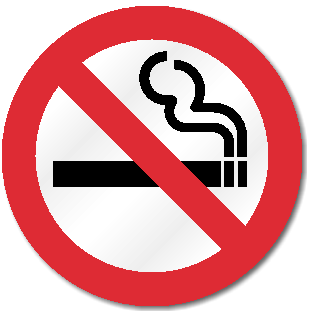

The Smoking Ban Debateby Jay Israel Covering smoking ban laws and legislation
Credible scientific research on the effects of second hand smoke seem to have fueled this debate in the last number of years. Passive smoking has been found to be responsible for specific health effects in non-smokers. Ultimately this means innocent people who do not smoke end up suffering and even dying from smoking effects to which they never lit a cigarette. Scientific evidence linking second hand smoke to heart disease, lung cancer, exacerbation of asthmatic attacks in children amongst other things have led to governments putting in place smoking laws that ban smoking in public places.
Advocacy groups fighting for smokers' rights firmly believe there are other more toxic and dangerous substances that governments should rather spend time and money controlling than tobacco. Not only does the smoking ban debate involve smokers, non-smokers and governments; it also inevitably sucks in business owners especially in the hospitality industry. Bar and restaurant owners feel smoking laws and smoking legislation banning smoking have a negative effect on their businesses. In the long run a terrible impact on business of smoking bans is predicted. In China for example just before the Beijing 2008 Olympics, business associations managed to convince government to impose partial smoking bans that spared bars, restaurants and hotels. They essentially feared for their business in a country with 350 million smokers. Continued discovery of other smoking consequences such as third hand smoke heavily annoy those who oppose smoking bans. They claim these endless researches often sponsored by governments and those who support them constantly aim to alienate smokers and causing them to become societal misfits. The tobacco industry itself has been known for years of a business survival tactic called "manufacturing doubt". This involves commissioning private scientific research whose aim is to cast a shadow of doubt over mainstream findings opposing smoking. This has the effect of confusing consumers of tobacco products often driving them to ignore tobacco health warnings. This strategy has since been successful applied in other industries. The key question often asked in this banning of smoking debate is whether the moves are producing any meaningful results. To anti-smoking groups stricter smoking laws can be credited for generally falling international smoking prevalence rates. To smokers smoking bans are hurting smokers by driving them to quit smoking without adequate support. Instead of blanket bans on smoking, pro-smoking groups would rather have governments facilitating the setting up of smoking shelters to accommodate smokers in public places. Further scientific research even exposes smoking shelters as not effective in containing second hand smoke. In the last few years, pro-smokers have lost much ground than ever before. The coming into effect of the Framework Convention on Tobacco Control (FCTC) has not helped the cause of smokers. Sponsored by WHO under the auspices of the UN, the convention has been adopted by over 165 countries and has nothing in store for smokers but more restrictions to tobacco usage. The smoking ban debate rages on as pro-smokers groups clearly continues to lose significant ground each year. Return to List of Articles on Tobacco and Health from The Smoking Ban Debate
|


























 On the other hand, people who smoke and those who support them argue that smoking bans badly infringe on the right of smokers. They question the validity and accuracy of second hand smoke research conclusions. Many in fact view these researches as conspiracy theories specifically designed to banish smokers for no meaningful reason.
On the other hand, people who smoke and those who support them argue that smoking bans badly infringe on the right of smokers. They question the validity and accuracy of second hand smoke research conclusions. Many in fact view these researches as conspiracy theories specifically designed to banish smokers for no meaningful reason.